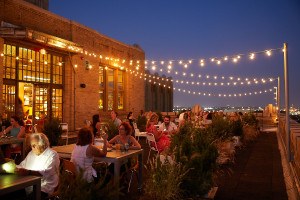Kurt Evans on People Power and Black American Chinese Food
The award-winning chef-activist talks platter food, cultural appropriation, and his latest concept, The Black Dragon Takeout.
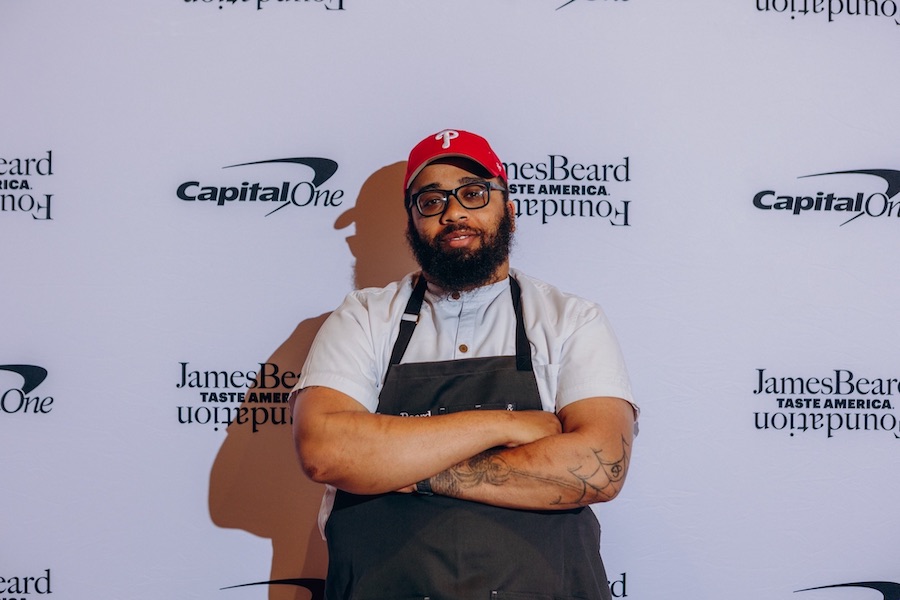
Chef Kurt Evans / Photographs courtesy of Kurt Evans
Behind the Line is Foobooz’s interview series with the people who make up Philly’s dynamic bar and restaurant scene. For the complete archives, go here.
For Kurt Evans, food work and community work have long gone hand-in-hand. The Philly-born chef and activist began using his cooking to draw attention to social and political issues affecting Black Philadelphians in 2018 with his End Mass Incarceration Dinners, where speakers ranging from elected officials to onetime juvenile lifers share their stories. Some of these meals kick off with an amuse bouche of chi chi, a dish often prepared by incarcerated people using ingredients like instant ramen noodles and crushed-up Cheetos.
In addition to facilitating EMI dinners, Evans was a chef at Down North, and helped open the mission-driven pizza shop in Strawberry Mansion dedicated to reducing recidivism by hiring formerly incarcerated employees. Through his work as a cofounder of Everybody Eats and a chef-organizer with The People’s Kitchen, two pandemic-era mutual aid projects, he’s supported vulnerable communities and fight food insecurity with free, nourishing meals. Recently, Evans has focused on organizing work with 215 People’s Alliance and running his catering company, Complement Your Lifestyle, where menus center around his self-described style of Black heritage cooking — think passed apps of Honeysuckle Provisions yamz bread topped with smoked salmon and New Orleans-sourced caviar.
Now, Evans has a new project in the works. The Black Dragon Takeout, inspired by the “Chinese stores” in the city’s historically Black neighborhoods, will blend Black American foodways and Americanized Chinese fare. He just launched a fund-raising campaign to bring the concept to life. In the meantime, Evans will host pop-ups around the city, with the first at Guardhouse Cafe in Bridesburg on May 21st. His long-term goal is to reclaim spaces in his native Southwest Philly (and beyond) by taking over vacant storefronts that once housed Chinese-owned spots, and to serve a menu of takeout staples reimagined with ingredients and influence from Black culture.
I spoke with Kurt about his vision for bringing culturally appropriate Chinese takeout to the Black community, the cookbook he’s working on, and restaurants’ pandemic-era reckoning.
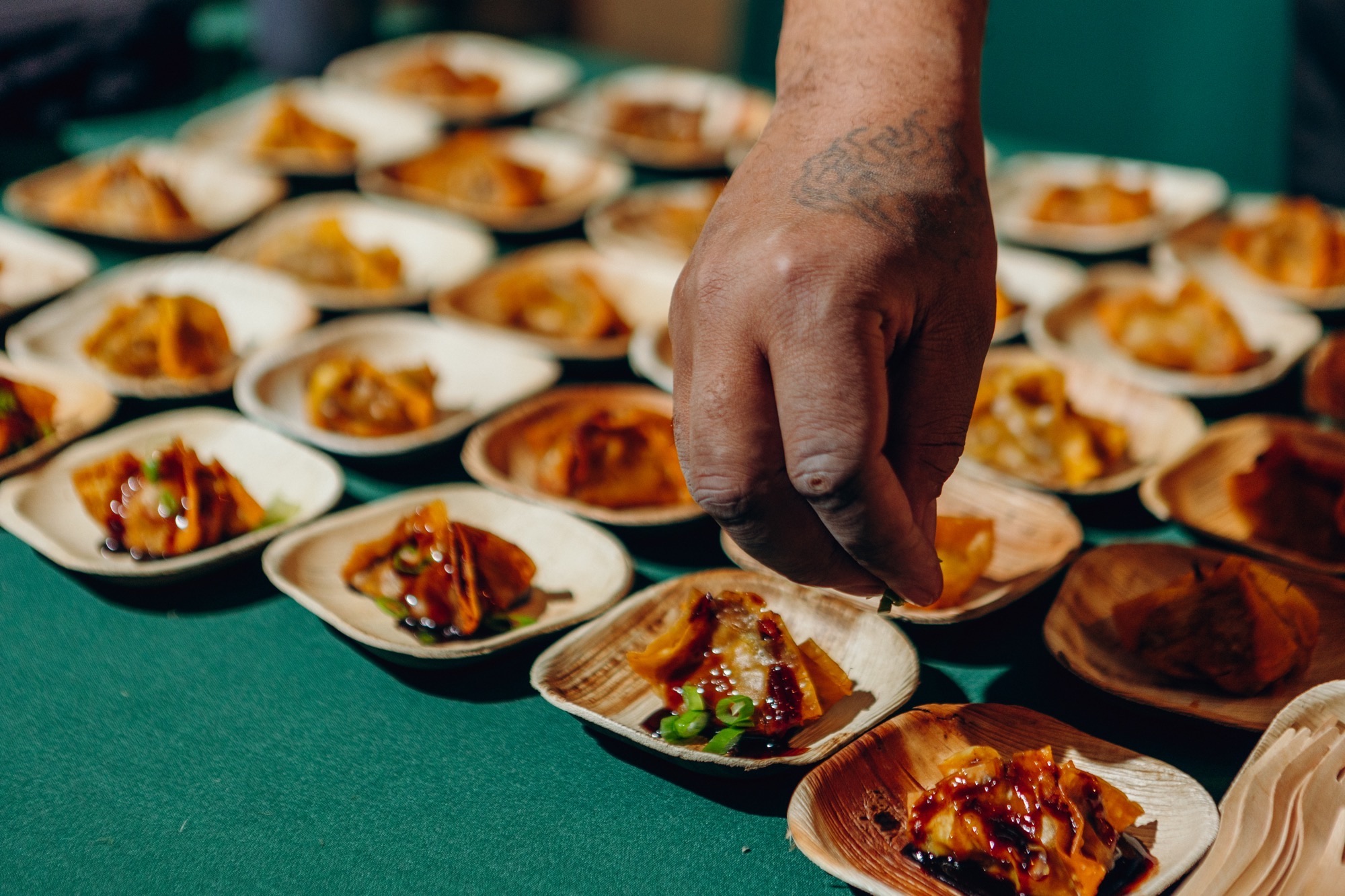
Evans plating oxtail Rangoon at the James Beard Foundation’s Taste America event this spring.
I grew up in … Southwest Philly, 46th and Woodland. But I spent a lot of my summers in Connecticut with my father’s side of the family. That’s where I got some of my cooking expertise, because we were big on hunting and fishing. If you catch the fish, you have to cook the fish.
My first job was … at the McDonald’s in CHOP in high school. Cooking has always been part of my life. My mother worked for Aramark for about 25 years, and she would take me to work with her some weekends. She managed the kitchen, so I would be in the basement with the production crew.
My main gig right now is … my catering company, CYL Hospitality Group. I hire people who have been formerly incarcerated, and I pay them really well. I’ll do that with The Black Dragon, too. But that’s not a prerequisite of why you’d hire me [for a catering gig], because we actually do really fucking good food. I don’t need to make money off the backs of other people. It’s off the back of my food. That’s just who I am as a person. When you see me, you know this is what I’m already doing. One of my favorite rappers, Fabolous, said, “When you really do it, you don’t have to announce it like that.”
My new dinner series is called … Stories of Resilience. With the EMI Dinners, we usually raise money for organizations, and now we’ve been raising money for individuals who are formerly incarcerated. We’ve raised over $10,000. Some of these guys did crimes when they were 16 and spent 25-plus years in prison. It’s not their responsibility to do this kind of outreach, but they take pride in wanting to help the community. They’re not scared to get out in the streets and talk to people. There’s a lot of emotional baggage with that, but there isn’t really a financial aspect to it. Everyone can use a financial benefit and some acknowledgment for the work they’re doing. Our last seven dinners have highlighted individuals that have been formerly incarcerated that are home making a difference in the community.
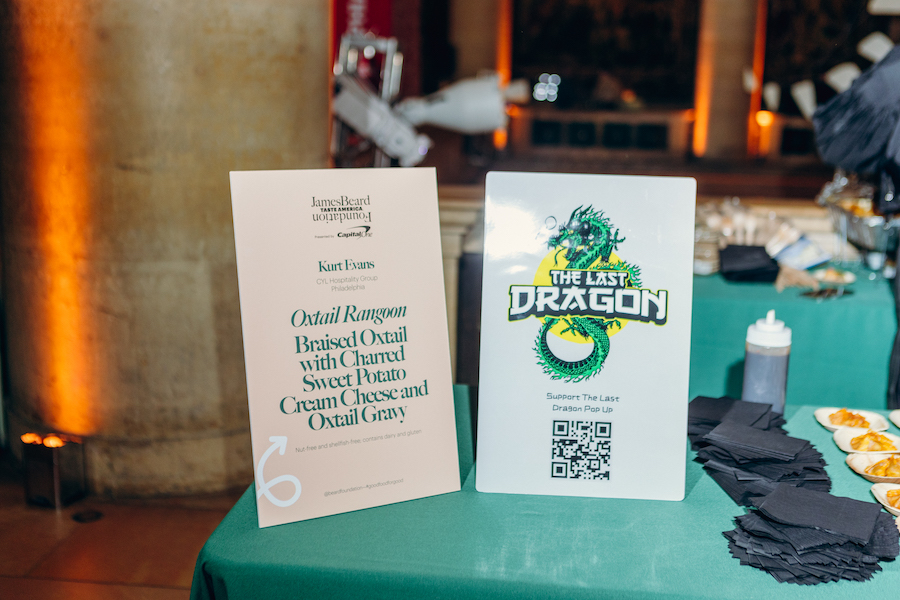
The Black Dragon Takeout is … a Black American Chinese restaurant. There are three types of Chinese restaurants [in America]. You’ve got the sit-down places in Chinatown, where they bring you a menu and all that. You have Chinese buffets in the suburbs, where you get all-you-can-eat type food. Then you have the hood Chinese store — desolate neighborhoods, high security, they buzz you in, a lot of them have bulletproof glass. These Chinese stores came into Black communities in the ’70s and ’80s, and a lot of them were actually franchises. This inspired us to think about a franchise model. I’m thinking bigger. I’m thinking P.F. Chang’s.
I first had the idea for The Black Dragon Takeout in … 2016. A mentor of mine, Earl Boyd, was the founding chair of the West Philadelphia Financial Services Institution, which is now called VestedIn. He told me about how a lot of the Chinese stores on Lancaster Avenue were closing and that it’d be cool to take over the stores. These stores have a long history in Black communities. The owners were shut out of other neighborhoods and couldn’t start businesses elsewhere, and there was no competition because many of these neighborhoods are food deserts. We can be real that it wasn’t a model of coming into these communities just to serve people. That being said, the food is fast, it’s hot, it’s a good meal you can get at a certain price point. They meet a crucial need in the community.
We want to put The Black Dragon Takeout only in former Chinese stores. We’re taking down the bulletproof glass. We’re going to host community events. A lot of the stores that are still up and running are for sale, because Mom and Dad are doing it, but the kids won’t be taking them on anymore. We’re not trying to put nobody out, but if you’re leaving and your building is for sale, we want to come in and do this project. It’s an ode to the Chinese store.
The Black Dragon Takeout will serve … dishes like oxtail Rangoon, collard-green egg rolls, and General Roscoe’s Chicken. People say General Tso is a made-up person, but General Roscoe Robinson was the first Black four-star general in America. He was from St. Louis, so the sauce is like a St. Louis barbecue sauce mixed with General Tso’s sauce. I like to push back on the idea of cultural appropriation because I’ve probably eaten fried rice from these stores more than any other. The hood Chinese store is a part of our culture. All I’m doing is making it culturally relevant to the people we serve.
When I’m not cooking, I’m … organizing with 215 People’s Alliance. I work in a coalition space with organizations like Straight Ahead, Amistad Law Project, Reclaim Philly, and Free the Ballot. I started as a volunteer during Larry Krasner’s second election cycle, then pretty much made my own position, because I started doing a lot of work around mass incarceration. I chaired this project called the Judge Accountability Table where we interviewed all the judges for the last two election cycles.
Getting the Champion of Change award from The World’s 50 Best Restaurants was … mind-blowing. I’m not gonna lie, I’m still kind of in shock, because I’m part of the academy now. I just cast my votes for restaurants to be on the World’s 50 Best list. The two other people I was honored with in 2021, one was from Bangkok, the other one was from Italy. It was a great experience to be the only chef in the Western Hemisphere to win that award. I was just excited to get acknowledged.
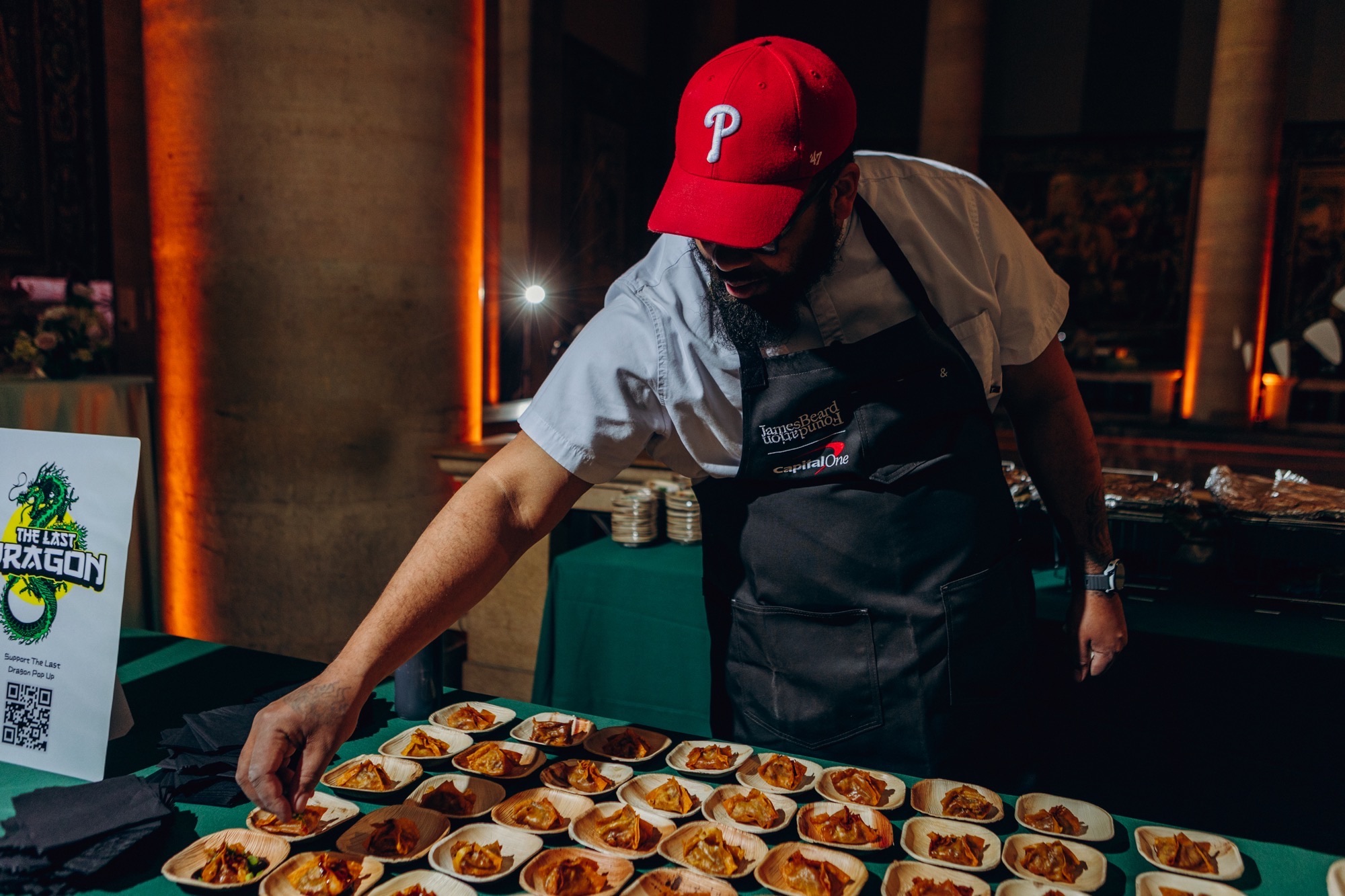
I think the reckoning around racism, sexism, and workers’ rights in restaurants is … not going away. People are waking up. These issues went on unchecked for so long. In Philadelphia during 2020, employees organized and shut restaurants down. People will start standing up for these things, like pay. That was at a time when you had to be really good to get $15 an hour. Now the minimum is $18 if you’re at a really good restaurant. Some people are making up to $25 an hour. That came about because people were like, “I’m not coming to work for less than this,” and now people are paying that. I don’t see this as just a COVID thing. Once people have seen the power of numbers, I don’t think they’re ever going to go back.
I’m working on a cookbook about … platter food. In the Black community, we sell platters as a way of financial liberation. People sold platters to put their kids in school, people sold platters to pay their rent, people have sold platters to bury their loved ones. Platter food is something that’s been going on since long before the Civil Rights Movement. It was also the first style of street vending food. The ladies selling pepper pot soup were just like someone selling a fried platter out of their house.
Some of my heroes are … people who were doing this community work because it’s just in their DNA. I feel as though I’m continuing down the path of people like Georgia Gilmore, the Black Panthers, Mother Charleszetta Waddles out in Detroit. I’m using food as a vehicle to talk about mass incarceration, racism, systemic issues. I’m really humbled and proud that I was able to continue the legacy of those freedom fighters.
Editor’s note: This story has been updated to reflect that The Black Dragon Takeout is now called The Black Dragon Takeout, and to clarify Evans involvement with Down North.


